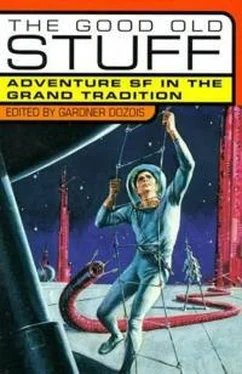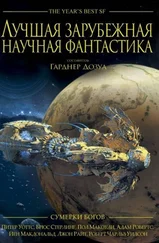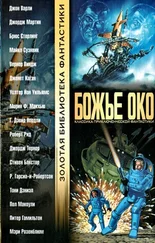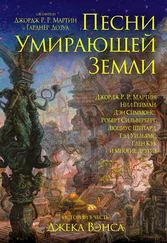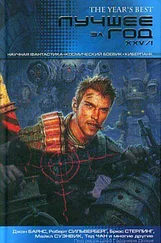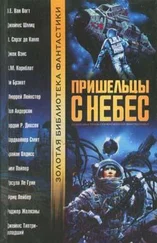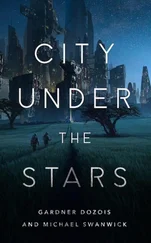Гарднер Дозуа - The Good Old Stuff
Здесь есть возможность читать онлайн «Гарднер Дозуа - The Good Old Stuff» весь текст электронной книги совершенно бесплатно (целиком полную версию без сокращений). В некоторых случаях можно слушать аудио, скачать через торрент в формате fb2 и присутствует краткое содержание. Год выпуска: 1998, ISBN: 1998, Издательство: St. Martin's Griffin, Жанр: Фантастика и фэнтези, на английском языке. Описание произведения, (предисловие) а так же отзывы посетителей доступны на портале библиотеки ЛибКат.
- Название:The Good Old Stuff
- Автор:
- Издательство:St. Martin's Griffin
- Жанр:
- Год:1998
- ISBN:0-312-19275-4
- Рейтинг книги:3 / 5. Голосов: 1
-
Избранное:Добавить в избранное
- Отзывы:
-
Ваша оценка:
- 60
- 1
- 2
- 3
- 4
- 5
The Good Old Stuff: краткое содержание, описание и аннотация
Предлагаем к чтению аннотацию, описание, краткое содержание или предисловие (зависит от того, что написал сам автор книги «The Good Old Stuff»). Если вы не нашли необходимую информацию о книге — напишите в комментариях, мы постараемся отыскать её.
The Good Old Stuff — читать онлайн бесплатно полную книгу (весь текст) целиком
Ниже представлен текст книги, разбитый по страницам. Система сохранения места последней прочитанной страницы, позволяет с удобством читать онлайн бесплатно книгу «The Good Old Stuff», без необходимости каждый раз заново искать на чём Вы остановились. Поставьте закладку, и сможете в любой момент перейти на страницу, на которой закончили чтение.
Интервал:
Закладка:
What did have a powerful impact on the SF world, though, was Kornbluth’s short fiction. Kornbluth was a master of the short story, working with a sophistication, maturity, elegance, and grace rarely seen in the genre, then or now. He was one of those key authors—one also thinks of Damon Knight, Theodore Sturgeon, Alfred Bester, Algis Budrys, and a few others—who were busy in the ‘50s redefining what you could do with the instrument known as the science fiction short story, and greatly expanding its range. In the years before his tragically early death in 1958 (on his way in to Manhattan for a meeting in which he was going to be offered the editorship of The Magazine of Fantasy & Science Fiction , by the way; now there’s an interesting basis for an Alternate Worlds scenario! One wonders what stories he would have bought, and what effect his editorship would have had on the evolution of SF ...), Kornbluth created some of the best short work of the ‘50s, including the classic “The Little Black Bag,” “The Marching Morons,” “Shark Ship,” “Two Dooms,” “The Mindworm,” “Gomez,” “The Last Man Left in the Bar,” “The Advent on Channel Twelve,” “Ms. Found in a Chinese Fortune Cookie,” “With These Hands,” and dozens of others ....
Including the hugely entertaining story that follows, a somewhat atypical story for Kornbluth—for the fact is that, except for this one famous story (and one or two other exceptions, such as the much weaker “The Slave”), Kornbluth rarely wrote straightforward adventure stories, under the Kornbluth byline anyway, especially Space Adventure stories of the swashbuckling, hard-nosed, rapacious, fast-paced sort that follows, where sharp-eyed cool-headed entrepreneurs haggle and brawl and wheel-and-deal their way across the Universe, out-thinking their adversaries and out-tricking them when backed into a corner.
“That Share of Glory,” in fact, is such a perfect Astounding story, so much the Platonic Ideal of what a story for John Campbell’s Astounding of that period should be like, that I can’t help but wonder if Kornbluth’s tongue wasn’t in his cheek when he wrote it, or if he wasn’t deliberately (with the cool-eyed calculation of the characters in the story) writing stuff that he knew would “push Campbell buttons,” a popular game among writers of the day. Even if one or both of those things are true, though, it hardly matters—Kornbluth may have told his friends or even himself that that’s what he was doing, but there’s too much conviction in his voice here, and he does too good a job, for me to believe that he didn’t like the stuff himself, whatever he may have claimed that he’d rather drink instead. For all of the cynical, jaded facade that he was famous for projecting, nobody but a True Believer at heart, one who somewhere, down deep, still thrilled to the dream of venturing out among the wonders and terrors of deep space, out to the unknown stars, could possibly have written the adventure that follows ...
Kornbluth won no major awards during his lifetime, but “The Meeting,” a story of his completed from a partial draft by Pohl years after his death, won a Hugo Award in 1972. Kornbluth’s solo short work was collected in The Explorers, A Mile Beyond the Moon, The Marching Morons, Thirteen O’Clock and Other Zero Hours , and The Best of C. M. Kornbluth . Pohl and Kornbluth’s collaborative short work has been collected in The Wonder Effect, Critical Mass, Before the Universe , and Our Best . Until recently, I would have said that everything by Kornbluth was long out of print, but, fortunately, NESFA Press published a massive retrospective Kornbluth collection in 1996, His Share of Glory: The Complete Short Fiction of C. M. Kornbluth (NESFA ress, P.O. Box 809, F ramingham, MA 07101-0203, www. nesfa.org $27.00), a collection which, true to its name, assembles almost everything Kornbluth ever wrote under his own name, and one which belongs in every serious SF reader’s library.
Young Alen, one of a thousand in the huge refectory, ate absent-mindedly as the reader droned into the perfect silence of the hall. Today’s lesson happened to be a word list of the Thetis VIII planet’s seagoing folk. “Tlon—a ship,” droned the reader.
“Rtlo—some ships, number unknown.
“Long—some ships, number known, always modified by cardinal.
“Ongr—a ship in a collection of ships, always modified by ordinal.
“Ngrt—first ship in a collection of ships; an exception to ongr”
A lay brother tiptoed to Alen’s side. “The Rector summons you,” he whispered.
Alen had no time for panic, though that was the usual reaction to a summons from the Rector to a novice. He slipped from the refectory, stepped onto the northbound corridor and stepped off at his cell, a minute later and a quarter mile farther on. Hastily, but meticulously, he changed from his drab habit to the heraldic robes in the cubicle with its simple stool, washstand, desk, and paperweight or two. Alen, a levelheaded young fellow, was not aware that he had broken any section of the Order’s complicated Rule, but he was aware that he could have done so without knowing it. It might, he thought, be the last time he would see the cell.
He cast a glance which he hoped would not be the final one over it; a glance which lingered a little fondly on the reel rack where were stowed: Nicholson on Martian Verbs, The New Oxford Venusian Dictionary, the ponderous six-reeler Deutsche-Ganymedische Konversasionslexikon published long ago and far away in Leipzig. The later works were there, too: The tongues of the Galaxy—an Essay in Classification, A Concise Grammar of Cephean, The Self-Pronouncing Vegan II Dictionary—scores of them, and, of course, the worn reel of old Machiavelli’s The Prince.
Enough of that! Alen combed out his small, neat beard and stepped onto the southbound corridor. He transferred to an eastbound at the next intersection and minutes later was before the Rector’s lay secretary.
“You better review your Lyran irregulars,” said the secretary disrespectfully. “There’s a trader in there who’s looking for a cheap herald on a swindling trip to Lyra VI.” Thus unceremoniously did Alen learn that he was not to be ejected from the Order b ut that he was to be elevated to Journeyman. But as a herald should, he betrayed no sign of his immense relief. He did, however, take the secretary’s advice and sensibly reviewed his Lyran.
While he was in the midst of a declension which applied only to inanimate objects, the voice of the Rector—and what a mellow voice it was!-floated through the secretary’s intercom.
“Admit the novice, Alen,” said the Master Herald. A final settling of his robes and the youth walked into the Rector’s huge office, with the seal of the Order blazing in diamonds above his desk. There was a stranger present; presumably the trader—a blackbearded fellow whose rugged frame didn’t carry his Vegan cloak with ease.
Said the Rector: “Novice, this is to be the crown of your toil if you are acceptable to—?” He courteously turned to the trader, who shrugged irritably.
“It’s all one to me,” growled the blackbeard. “Somebody cheap, somebody who knows the cant of the thievish Lyran gem peddlers, above all, somebody at once. Overhead is devouring my flesh day by day as the ship waits at the field. And when we are spaceborne, my imbecile crew will doubtless waste liter after priceless liter of my fuel. And when we land the swindling Lyrans will without doubt make my ruin complete by tricking me even out of the minute profit I hope to realize. Good Master Herald, let me have the infant cheap and I’ll bid you good day.”
The Rector’s shaggy eyebrows drew down in a frown. “Trader,” he said sonorously, “our mission of galactic utilitarian culture is not concerned with your margin of profit. I ask you to test this youth and, if you find him able, to take him as your Herald on your voyage.
Читать дальшеИнтервал:
Закладка:
Похожие книги на «The Good Old Stuff»
Представляем Вашему вниманию похожие книги на «The Good Old Stuff» списком для выбора. Мы отобрали схожую по названию и смыслу литературу в надежде предоставить читателям больше вариантов отыскать новые, интересные, ещё непрочитанные произведения.
Обсуждение, отзывы о книге «The Good Old Stuff» и просто собственные мнения читателей. Оставьте ваши комментарии, напишите, что Вы думаете о произведении, его смысле или главных героях. Укажите что конкретно понравилось, а что нет, и почему Вы так считаете.
